The Lincoln Aviator wears an elegant design that’s hardly a surprise, given it’s a Lincoln SUV. It saw a major upgrade in 2025, making it sophisticated at every trim level, and a seriously tempting three-row luxury SUV option.
Considering the Aviator’s dimensions, the SUV is one of the largest in its class. And it naturally slots between Lincoln’s flagship Navigator and the newer Nautilus. Here are some interesting things to know about the 2026 Lincoln Aviator.
Uniform Power
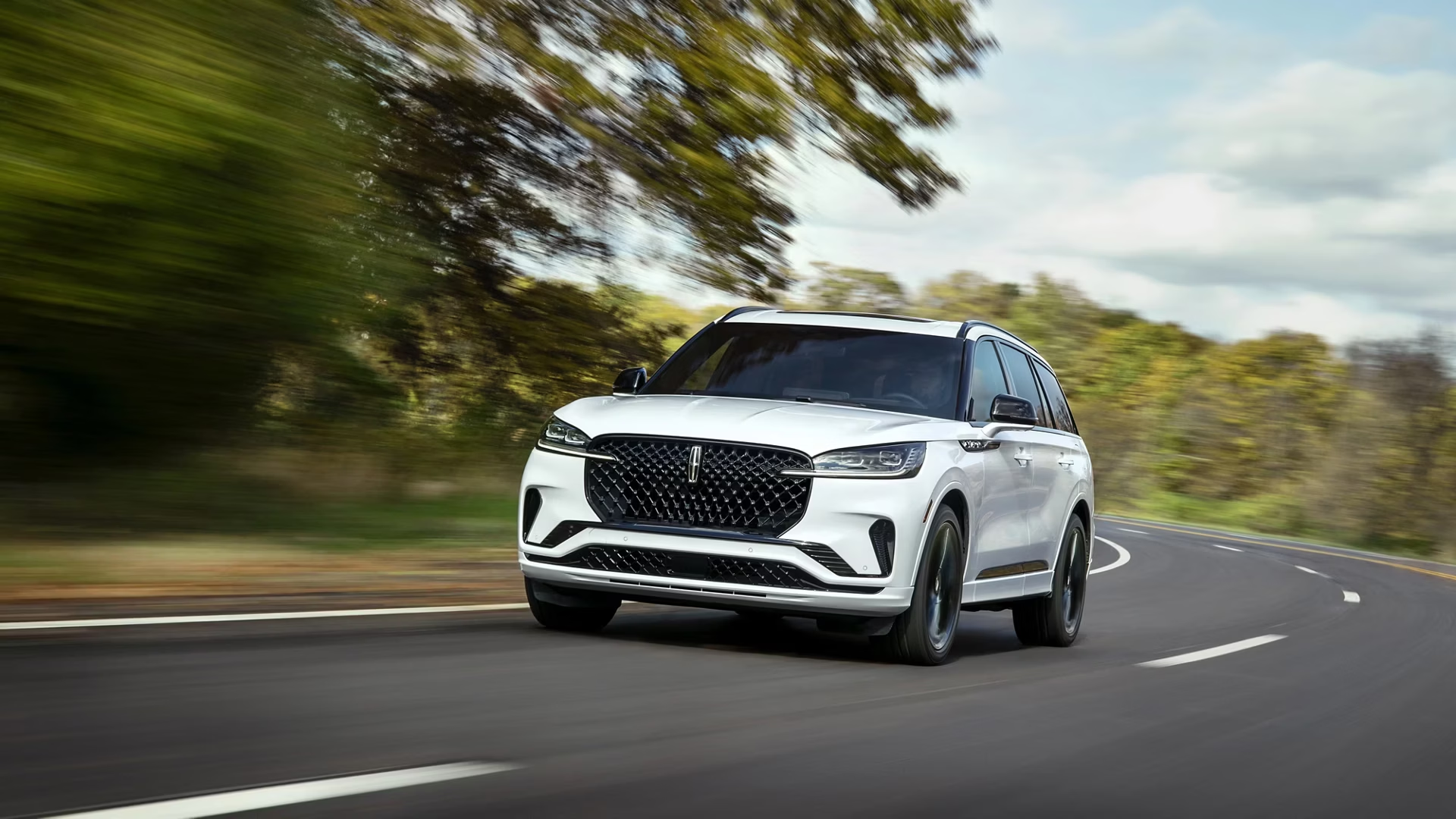
The same feisty twin-turbocharged 3.0L V6 engine powers all trims of the Aviator. It pumps out 400hp and 415 lb.ft of torque to the wheels through a quick-shifting 10-speed automatic transmission. With that output, it goes from 0–60 mph in 5.6s. Depending on the trim and the buyer’s choice, the Aviator can be RWD or AWD.
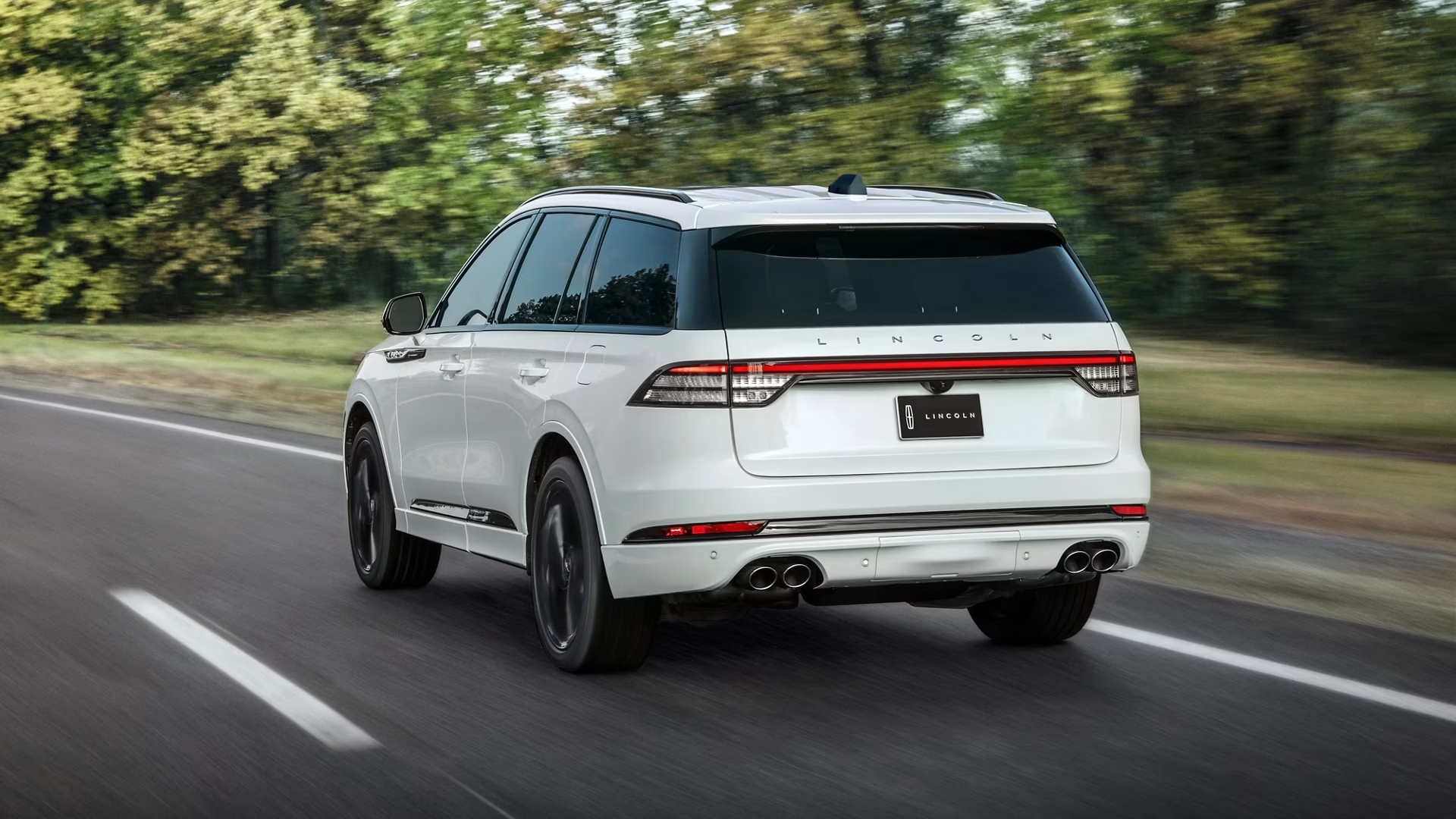
The Aviator’s handling is smooth, and the drive is nothing short of impressive. With its standard adaptive suspension, the mid-size luxury SUV adapts to terrain changes. However, with the Dynamic Handling Package, the SUV can automatically adjust the ride height for improved handling precision.
Related:
Hyundai’s New Heavyweight, the Ioniq 9, is Charged for Success
A Warm Space
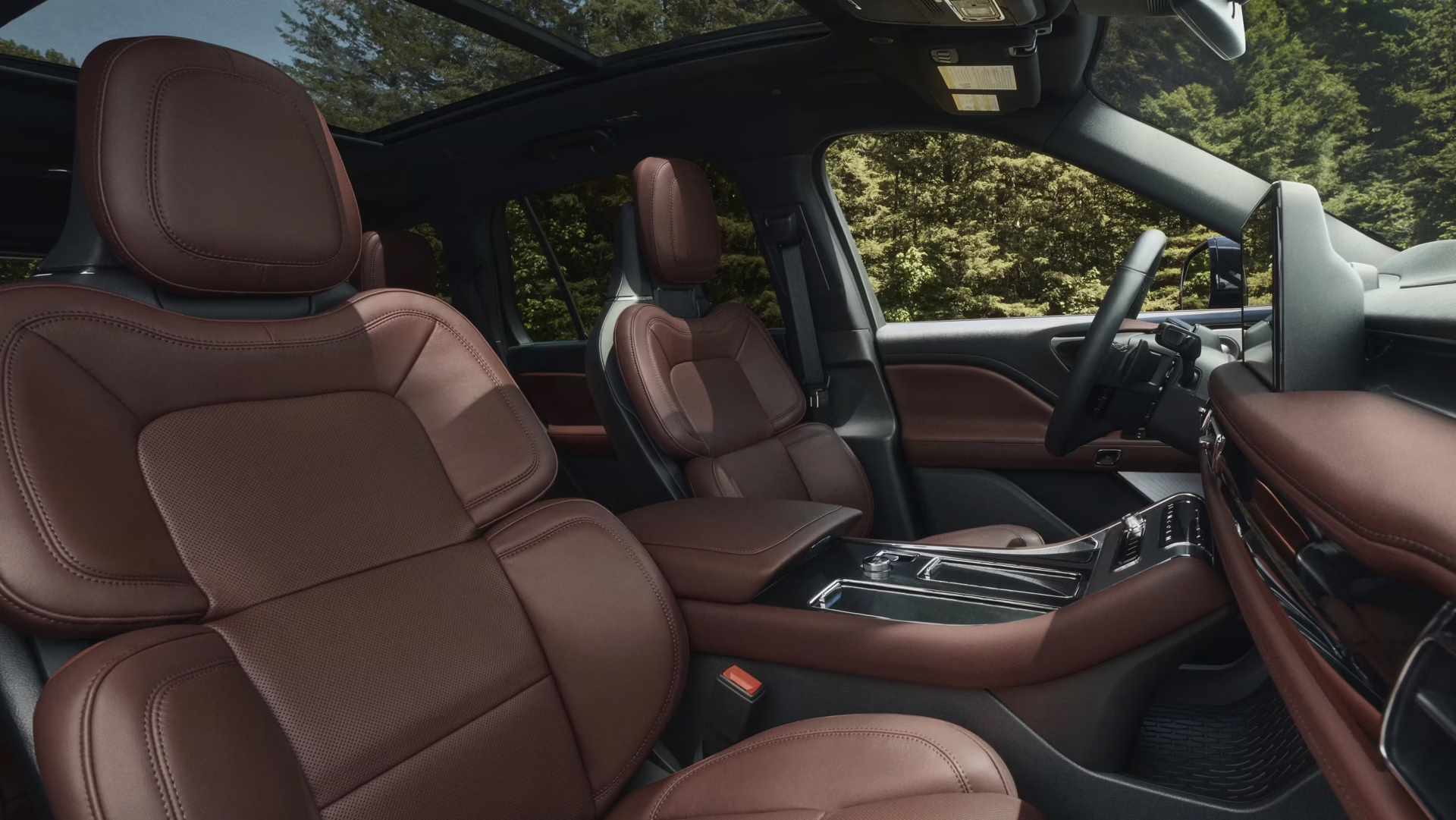
The Aviator’s cabin is both luxurious and convenient. It has a heated, leather-wrapped steering wheel with some control buttons. The positioning of the shifters beneath the vents where HVAC controls naturally go may be unfamiliar, but they don’t look out of place.
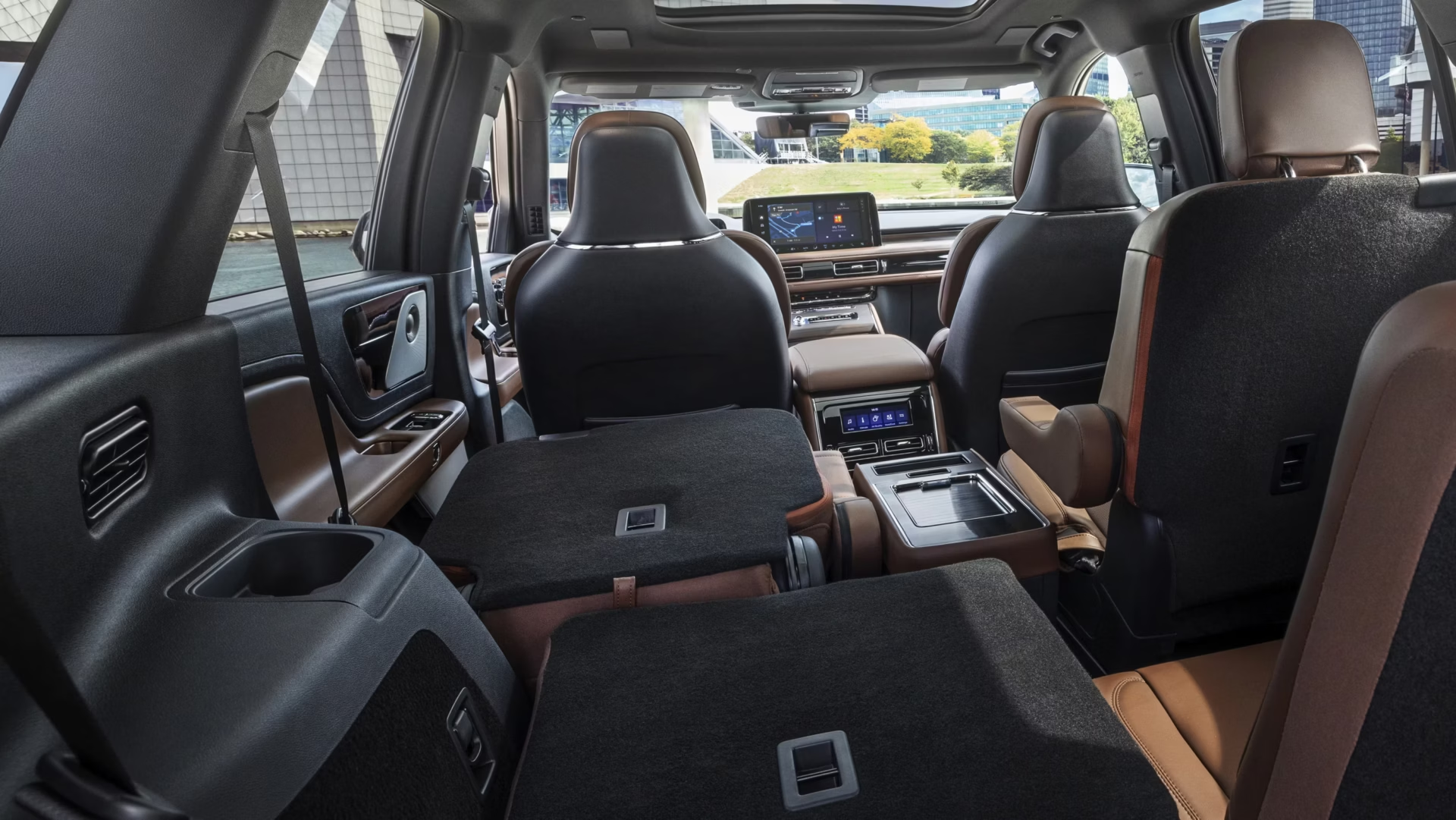
Depending on seating configuration, the Aviator accommodates six with the standard second-row captain’s chairs or seven with the optional bench seat. While the first two rows are convenient, the third row may be more suitable for kids, especially on long trips. Thankfully, that means there’s a decent 16.5 cu—ft of cargo space behind the Aviator. And the volume increases to 39.9 and 75.9 cu.ft when you flatten out the third and second rows, respectively. A panoramic roof with a sunshade overlooks the entire cabin, elevating its overall beauty.
Loaded to the Brim
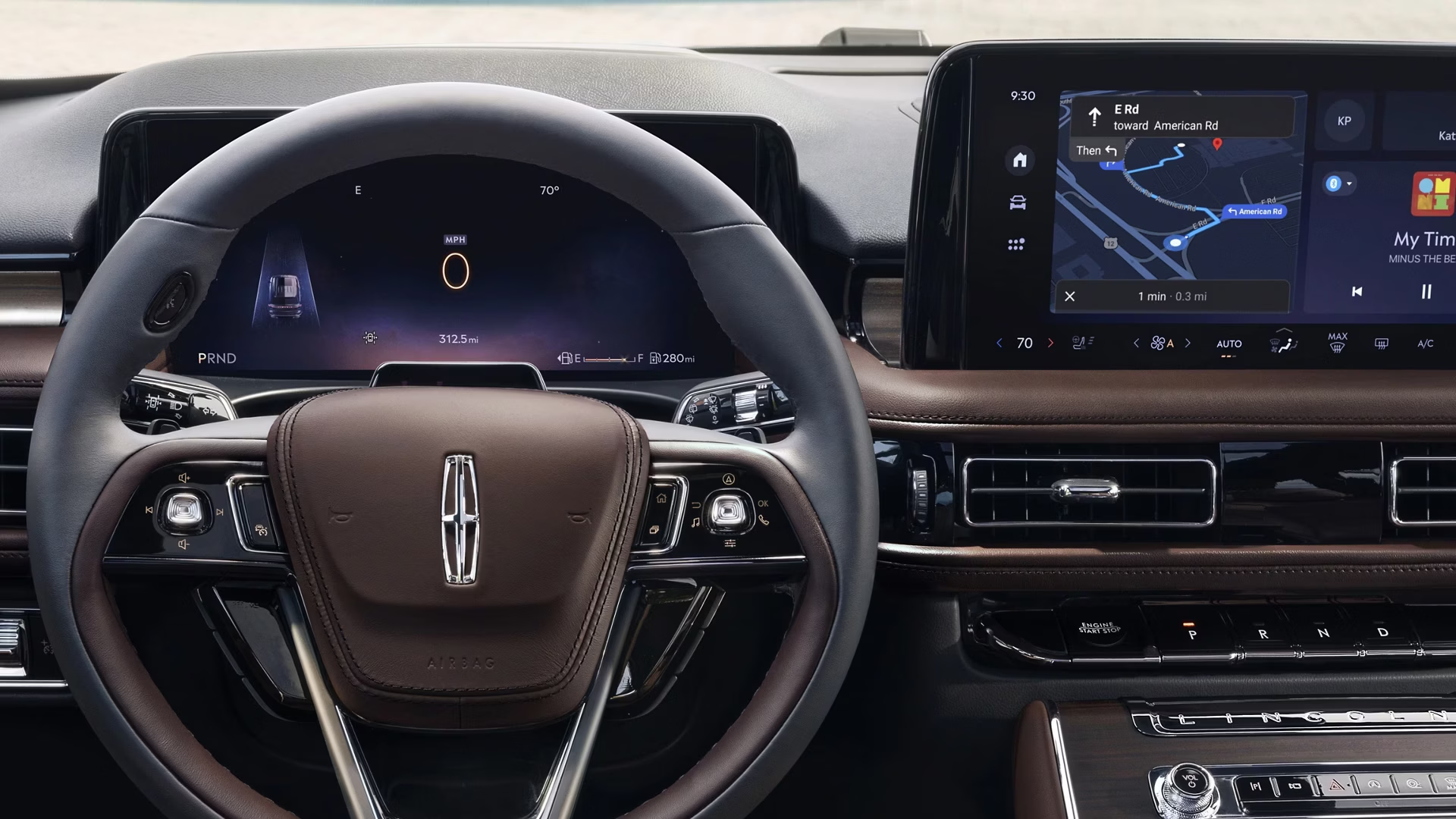
The 2026 Aviator is equipped with many tech features across the three trims. A 12.4-inch instrument cluster and a 13.2-inch infotainment touchscreen make up the displays in the cabin. Standard compatibility includes Apple CarPlay, Android Auto, WiFi hotspot, and satellite radio, amongst others. While a 10-speaker audio system comes standard, 14- and 28-speaker systems are available for improved sound quality.

The SUV also offers many standard driver-assist and safety features. Lincoln BlueCruise, the feature that allows for hands-free highway driving, comes standard. Other standard safety features include a rearview camera, airbags from different zones, a tire pressure monitoring system, etc. While standard driver-assist features include Blind Spot Detection, front and rear parking sensors, and cross-traffic alert.
Related:
Half Sports Car, Half Boss-Mobile: The GV80 Coupe is Genesis’ Boldest Move Yet
Models and Competition
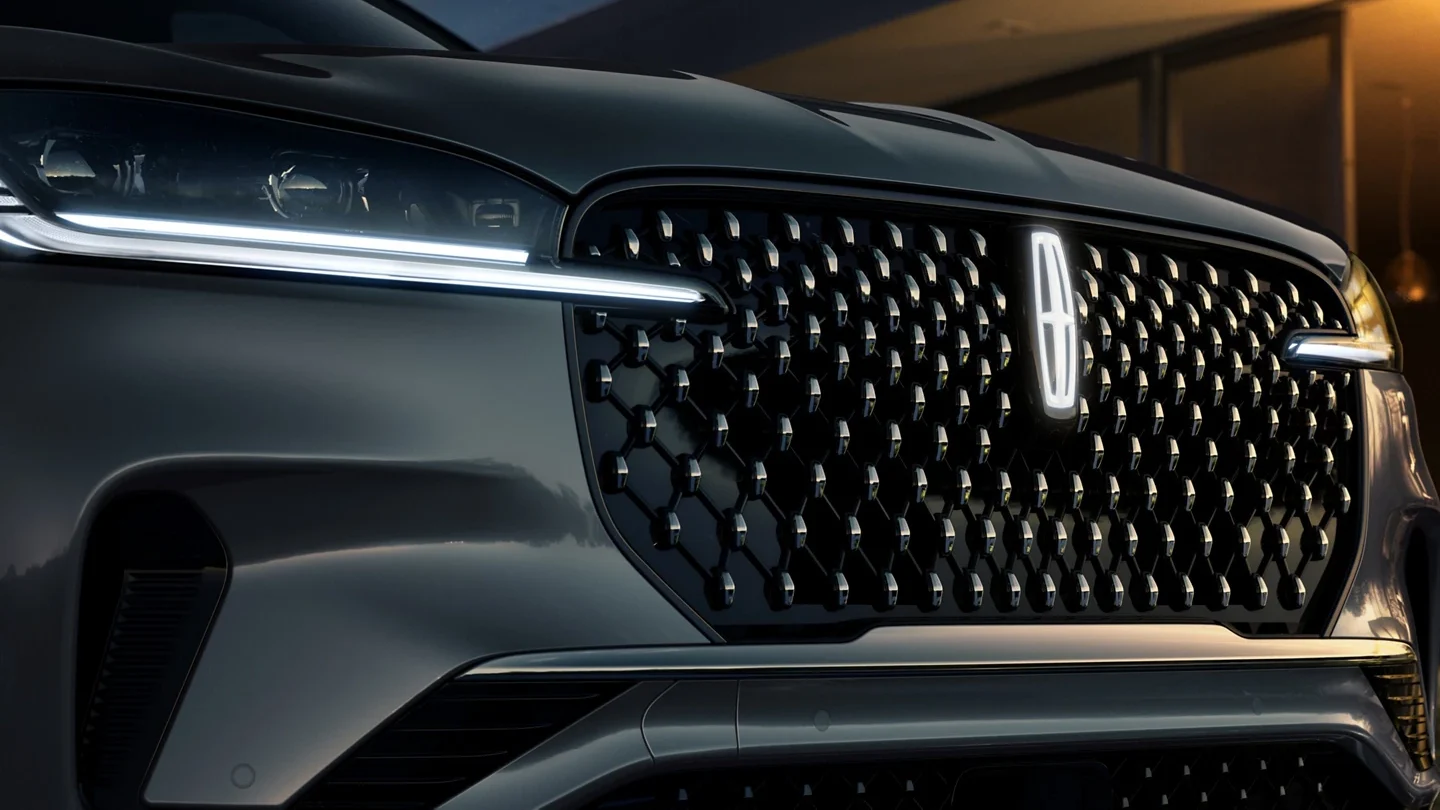
The 2026 Lincoln Aviator has three trims: Premiere (MSRP: $56,910), Reserve (MSRP: $66,730), and Black Label (MSRP: $85,380). Aviator Reserve is the sweet spot among the three, thanks to its standard and optional features. The optional features, which are not available on the Premiere trim, include 22″ wheels, air suspension, a 28-speaker audio system, etc.
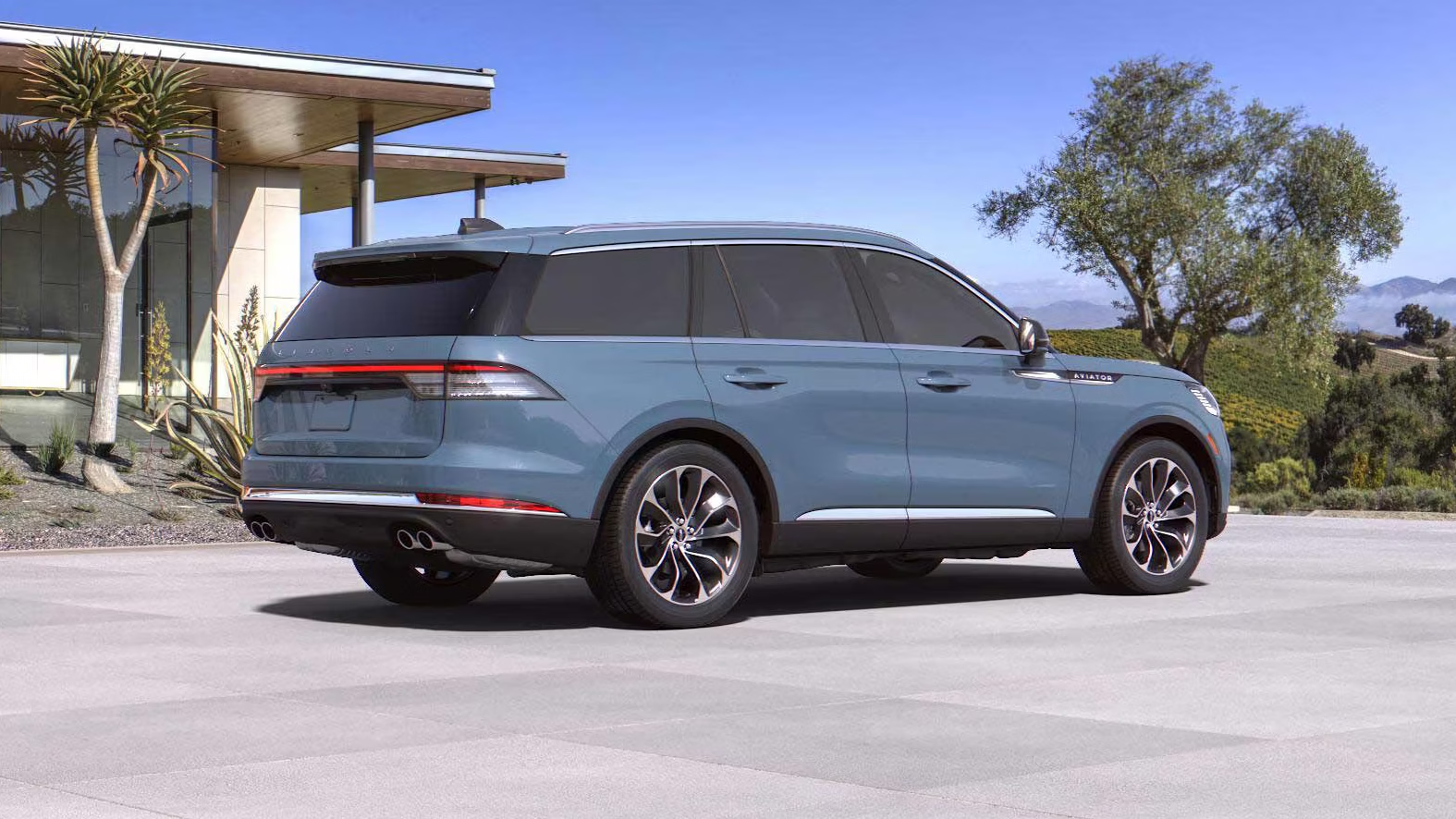
In its class, the Aviator’s direct rivals are the Audi Q7 (starting at $62,000), Volvo XC90 (starting at $62,345), and Genesis GV80 (starting at $57,700). While they all have their selling points, the Aviator stands out for its power, with the most powerful standard engine of the lot. Considering it is also loaded across all trims, it offers great value for money in its class.
